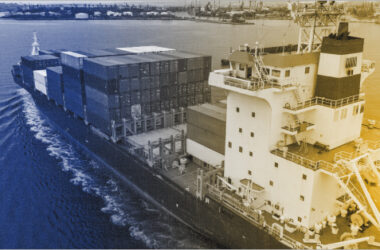In the intricate world of Marine Insurance in India, a fundamental concept plays a pivotal role in shaping the dynamics of coverage and claims – Insurable Interest. This article looks into the basics of Insurable Interest in the context of Marine Insurance, unravelling its significance and implications within the Indian maritime insurance landscape. As we navigate through the intricacies of this essential principle, we aim to provide a comprehensive understanding of how it influences the relationship between insurers and policyholders, shaping the foundation of secure and reliable Marine Insurance practices in the country. Join us on this exploration, as we demystify its relevance and application in the realm of Marine Insurance.
Concept of Insurable Interest
Insurable interest is a foundational concept in the domain of insurance, serving as a fundamental principle that underlines the validity and enforceability of an insurance contract. Simply put, insurable interest refers to a financial stake or legal relationship that an individual or entity has in the subject matter of the insurance policy. In other words, the policyholder must stand to suffer a financial loss or have a legitimate financial interest in the insured property, life, or event.
This requirement ensures that insurance is not used as a speculative tool but rather as a means of mitigating genuine financial risks. Insurable interest acts as a critical safeguard against moral hazards and is a key determinant in establishing the legal and ethical foundation of insurance agreements. The concept is applied across various insurance types, including life, property, and liability insurance, and plays a vital role in maintaining the integrity and fairness of the insurance industry as a whole.
Insurable interest is an important aspect of Marine Insurance in India, as it determines who can take out insurance policies and how much coverage they can obtain. The Indian Marine Insurance Act requires that the insured party must have an insurable interest in the property being insured at the time of the loss. This means that the insured party must stand to suffer a financial loss if the property is damaged or lost. Without an insurable interest, the insurance policy would be considered a wagering contract and would be void. Insurable interest is crucial in marine insurance as it prevents individuals from taking out insurance policies on property or cargo in which they have no financial interest.
In the context of Marine Insurance, insurable interest can take many forms, such as ownership of the ship or cargo, a contractual obligation to transport goods, or a financial interest in the safe arrival of the cargo. According to the Indian Marine Insurance Act, of 1963, the insurable interest must exist at the time of taking out the policy and must continue throughout the duration of the policy. If the insured loses his insurable interest in the subject matter of the policy, the policy becomes void.
Application of Insurable interest in different types of Marine Insurance
Marine Insurance is an important aspect of the shipping industry in India. It is a means of protecting the interests of ship owners, cargo owners, and other parties involved in maritime trade. Insurable interest determines who can take out an insurance policy and what risks can be covered.
In Cargo Insurance
Cargo insurance is a type of Marine Insurance that covers loss or damage to goods being transported by sea. In India, cargo insurance is governed by the Marine Insurance Act of 1963. To take out a cargo insurance policy, the policyholder must have an insurable interest in the cargo, which means that they must stand to lose financially if the cargo is lost or damaged.
In Hull Insurance
Hull insurance is a type of Marine Insurance that covers loss or damage to the ship itself. This can include damage caused by collisions, storms, or other perils of the sea. In India, hull insurance is governed by the Indian Marine Insurance Act of 1963. To take out a hull insurance policy, the policyholder must have an insurable interest in the ship, which means that they must stand to lose financially if the ship is lost or damaged.
In Freight Insurance
Freight insurance is a type of Marine Insurance that covers the loss of freight revenue due to damage or loss of cargo. In India, freight insurance is governed by the Indian Marine Insurance Act of 1963. To take out a freight insurance policy, the policyholder must have an insurable interest in the freight, which means that they must stand to lose financially if the cargo is lost or damaged.
Policyholders need to understand the implications of insurable interest. By ensuring that they have an insurable interest in the subject matter of the insurance, policyholders can protect their financial interests and mitigate the risks associated with maritime trade.
Establishing Insurable Interest
A. At the time of Policy Issuance
At the time of policy issuance, the policyholder must establish that they have a financial interest in the subject matter of the insurance. The policyholder must disclose all material facts related to the subject matter of the insurance, including the nature of the cargo, the value of the cargo, and the shipping route. Failure to disclose any material fact may result in the policy being voided.
B. At the Time of Loss
At the time of loss, the policyholder must still have an insurable interest in the subject matter of the insurance. If the policyholder has already sold the cargo, then they no longer have an insurable interest in it. Similarly, if the cargo has already been lost or damaged, then the policyholder no longer has an insurable interest in it.
In case of a partial loss, the policyholder should have an insurable interest in the remaining portion of the cargo. For example, if a shipment of 100 tonnes of steel is insured, and 20 tonnes are lost in transit, the policyholder must have an insurable interest in the remaining 80 tonnes of steel.
Case Studies and Disputes Related to Insurable Interest in Marine Insurance
In the case of National Insurance Co. Ltd. v. Sujir Ganesh Nayak in 1997, the court held that the insured must have an insurable interest in the subject matter of the insurance at the time of the loss. In this case, the insured had insured a consignment of goods which were stolen before they were delivered to the consignee. The insurer refused to pay the claim as the insured did not have an insurable interest at the time of the loss. The court held that the insured did not have an insurable interest as the goods had not been delivered to the consignee.
In the case of United India Insurance Co. Ltd. v. Orient Treasures Pvt. Ltd. in 2012, the court held that the insured must have an insurable interest in the subject matter of the insurance at the time of the loss. In this case, the insured had insured a consignment of goods which were damaged during transit. The insurer refused to pay the claim as the insured did not have an insurable interest at the time of the loss. The court held that the insured did not have an insurable interest as the insured had already sold the goods to the consignee before the loss occurred.
Overall, these cases highlight the importance of insurable interest in Marine Insurance in India and the need for insureds to ensure that they have a valid insurable interest in the subject matter of the insurance at the time of the loss.
Conclusion:
We can conclude by saying that a nuanced comprehension of insurable interest is paramount for all stakeholders navigating the complex waters of Marine Insurance. As we have explored in this article, the concept serves as the bedrock of insurance agreements, ensuring that policyholders possess a legitimate financial interest in the insured subject matter.
Within the maritime context, where risks are inherent and diverse, a clear understanding of Insurable Interest is indispensable for both insurers and policyholders. By appreciating the nuances of this principle, the maritime insurance landscape can foster transparency, fairness, and a resilient foundation for risk management.
Frequently Asked Questions
- How is insurable interest established for marine policies under the Marine Insurance Act, 1963?
Insurable interest is established through ownership, possession, or a financial interest in the vessel or cargo being insured. For example, a shipowner has an insurable interest in his vessel, a consignee has an insurable interest in goods shipped to him, and a lender has an insurable interest in the property pledged as security for a loan.
- What are the legal requirements for insurable interest in Marine Insurance within Indian jurisdiction?
Under Indian law, the policyholder must have an insurable interest at the time of the policy’s inception and at the time of the loss. The policyholder must also have a direct financial interest in the property being insured, and the amount of insurance coverage must not exceed the value of the property.
- How is the insured value determined in the case of Marine Insurance contracts?
The insured value is typically determined based on the market value of the vessel or cargo at the time of the policy’s inception. The value may be adjusted during the policy period to reflect changes in the value of the property being insured.
Read more about Single Transit Policy
Read more about Marine Open Policy
Latest News
Cargo ship fire off Dutch coast leaves Indian crew member dead, 20 injured.
In a tragic incident off the coast of the Netherlands, a cargo vessel, the Fremantle Highway, faced a major fire outbreak on Tuesday night. The vessel, registered in Panama and spanning 199 meters, was ferrying nearly 3,000 cars from Germany to Egypt. Amidst the chaos, an Indian crew member lost his life, and distressingly, 20 others sustained injuries in the turmoil.
The severity of the situation prompted several crew members to
resort to desperate measures, with some being compelled to jump overboard to
evade the engulfing flames. Dutch coastguards, grappling with the enormity of
the blaze, have cautioned that extinguishing the fire might extend over the
span of several days.
This tragic incident underscores the inherent risks faced by
seafarers in their line of duty, as they navigate through perilous waters,
often encountering unforeseen challenges. As investigations unfold to determine
the cause of the fire and assess the extent of damages, thoughts and
condolences extend to the affected crew members and their families during this
difficult time.







